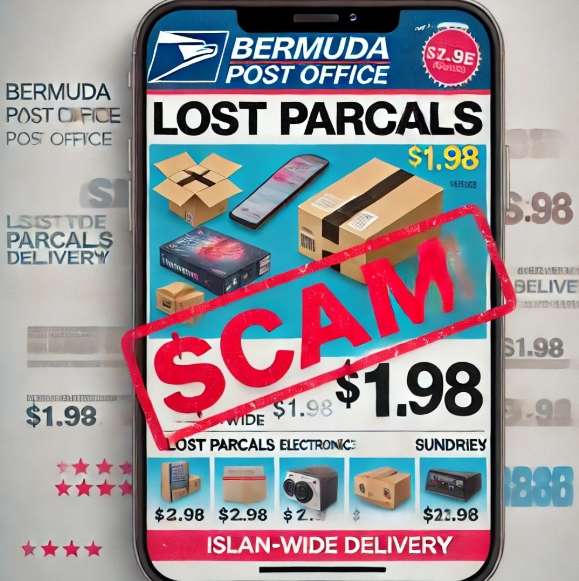Bermuda Post Office Investigates “Lost Parcel” Facebook Scam.
The Royal Gazette of Bermuda has reported a circulating online scam involving a fake advertisement claiming that the Bermuda Post Office is selling lost parcels for a mere $1.98. This fraudulent post entices potential victims with the promise of “various items and electronics” and island-wide delivery. The Bermuda Government has promptly responded, urging the public to report any encounters with this deceptive advertisement to the police. Authorities have confirmed that the post is a scam, unequivocally disassociating it from both the Bermuda Post Office and the Government of Bermuda. They also warn of the potential dangers associated with clicking on the link embedded within the post, emphasizing the risk of personal data theft and financial fraud. This incident highlights the increasing prevalence of online scams and the importance of public awareness and vigilance.
The primary beneficiaries of such a scam are, undoubtedly, the scammers themselves. Their motivations are multifaceted, ranging from financial gain to the acquisition of sensitive personal information. One of their primary objectives is to steal personal information. By enticing individuals to click on the fraudulent link, scammers can gain access to a trove of sensitive data, including names, addresses, phone numbers, and even banking credentials. This information can then be exploited for various malicious purposes, including identity theft, phishing attacks, and other forms of cybercrime. Furthermore, scammers aim to commit financial fraud by luring victims into providing payment information for the purportedly discounted parcels. This can lead to unauthorized transactions, draining victims’ bank accounts and causing significant financial distress.
Beyond financial gain, scammers often use such schemes to spread malware. The deceptive link within the advertisement may lead to the installation of malicious software on the victim’s device. This malware can then be used to further compromise the victim’s security, granting scammers access to even more private data or even control over the device itself. Using the name of a recognized institution like the Bermuda Post Office adds an air of legitimacy to the scam, exploiting the trust that people place in established organizations. This tactic makes the scam appear more convincing and increases the likelihood of individuals falling prey to the deception.
It’s important to understand that while the sale of unclaimed or lost parcels is a legitimate practice by postal services and courier companies worldwide, it is conducted through official and regulated channels. These sales typically take the form of public auctions, often announced on official websites or through public notices. In some cases, unclaimed items may be sold in bulk to licensed resellers who then offer them to the public. These processes are governed by strict rules and legal procedures to ensure transparency and fairness, protecting both the original owners and the buyers. The haphazard nature of the fraudulent advertisement, with its incredibly low price point and dissemination through unofficial channels like social media, is a clear indication of its deceptive nature.
The red flags in this particular scam are readily apparent. The unusually low price of $1.98 for parcels containing “various items and electronics” is immediately suspicious. Legitimate sales of unclaimed parcels, even at discounted rates, would not be priced this low. Furthermore, the use of social media as the primary advertising channel is highly irregular. Official postal services and courier companies utilize formal channels for such announcements, ensuring transparency and accountability. The combination of these factors strongly suggests a scam, warranting caution and skepticism.
To protect oneself from such scams, it’s crucial to exercise vigilance and verify any such claims with the official post office or courier service. If you encounter similar advertisements, especially on social media, avoid clicking on any embedded links and report the post to the platform and the relevant authorities. By remaining aware of these common scam tactics and exercising caution, individuals can significantly reduce their risk of becoming victims of online fraud. Remember, if a deal seems too good to be true, it probably is. Always prioritize verifying information through official channels before engaging with any online offers, especially those involving financial transactions or the disclosure of personal information. This vigilance can help safeguard your personal and financial security in an increasingly complex digital landscape.
Share this content:












Post Comment